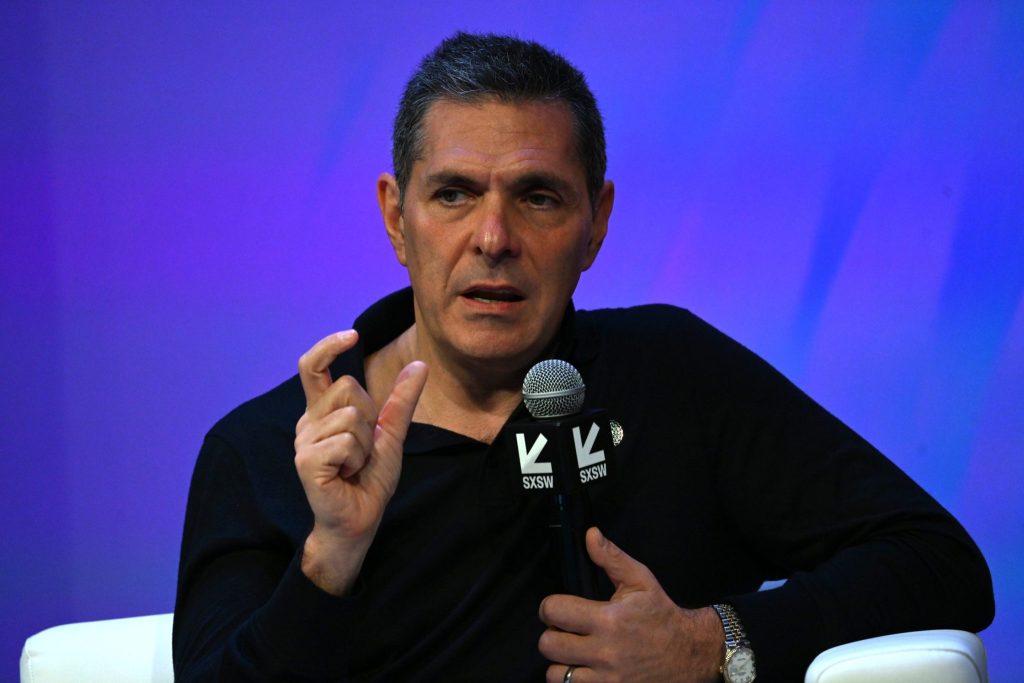- Billionaire Shark Tank star Daniel Lubetzky warns that Gen Z who lean too heavily on social media (and even AI), may lose the skills they need to succeed. Instead, the Gen Xer advises young people to embrace critical thinking and curiosity—and he says, the key to doing so is going back to basics and reading philosophers like Plato, Socrates, and Aristotle. It’s a message that’s been echoed across the business world, including the CEOs of AWS and OpenAI.
AI has turned the careers of Gen Z on their head—so in order to get ahead of the curve, many have followed the advice of leaders in the industry like Mark Cuban and Satya Nadella who say the new secret for success is studying AI.
But billionaire Shark Tank star and KIND bar founder Daniel Lubetzky isn’t quite convinced. In fact, he tells Gen Z it may be time to put the tech away and get back to basics in order to get ahead.
“Being a critical thinker is in high demand, and they’re going to become greater demand. AI is real, but it doesn’t have the creativity that humans have,” Lubetzky exclusively tells Fortune. “If, as young people, you lean into your curiosity, in your critical thinking and in your creativity, you will win.”
Part of this recipe includes ditching social media algorithms and seeking out new sources of information, he says—which should include a focus on questioning history and philosophy. Studying the works of those who lived more than 2,000 years ago—like Plato, Socrates, and Aristotle—is what he recommends.
“Always ask why, and then go one level below double click, triple click, to the sources. Why? Why? Why? Why? If you do that, you’re going to develop a mind that’s going to be able to beat anybody else and be more valuable in the workplace,” he said.
“Learn to question others, and learn to question yourself, to be introspective, to think for yourself and say, ‘What did I do wrong today? How can I get stronger?’”
Learning AI is important—but don’t let it be a brain drain
As technology continues to revolutionize the workplace, AI literacy is the No. 1 fastest-growing skill in the U.S., according to LinkedIn. Even though being adept at the technology could enhance one’s productivity, there are indications that cognitive offloading may be making humans less skilled.
It may then come as no surprise Lubetzky is not the only one betting sharp, independent thinking will be one of the most coveted skills in the workplace. In fact, according to Amazon Web Services (AWS) CEO Matt Garman, critical thinking will be people’s No. 1 biggest skill to succeed in the age of AI.
“You’re going to want to be creative,” Garman said to CNBC last month. “You’re going to want to be [good at] critical thinking. And you’re going to want to be flexible.”
I think the ability to learn new things and adapt is going to be just as important as any particular skill that you learn,” he added.
It’s something that even AI leaders agree with too, including OpenAI CEO Sam Altman.
“I think critical thinking, creativity, the ability to figure out what other people want, the ability to have new ideas, that in some sense that’ll be the most valuable skill of the future,” Altman told students at Howard University last year.
Being prepared to adapt might outshine any skill
Predicting what will be the next big thing in business is a nearly impossible task, but many leaders have bold expectations. According to Google’s Deepmind CEO Demis Hassabis, AI will rival humans in just five years and will help us “colonize the galaxy.” Altman has similarly said college graduates may be heavily focused on space travel in the coming years.
But since tech trends continue to rise and fall, what may be the even greater bellwether for success is how open you are to adaptation. Lubetzky admits it’s a daunting time for society—but the same things that are challenging could open doors for opportunity.
“When people are zigging, if you zag, you’re going to do better,” said Lubetzky, who is set to reappear on Shark Tank’s 17th season this fall. “If others are not taking advantage of those opportunities, if you’re the one that takes advantage, you’re going to outperform even more so.”
This story was originally featured on Fortune.com







